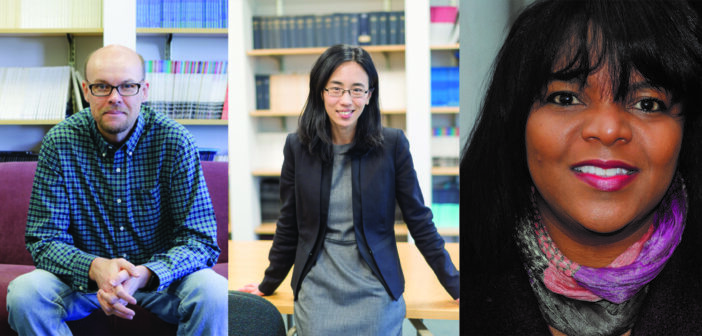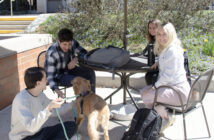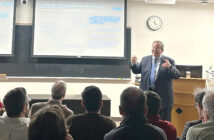Lehigh faculty and staff living with unvaccinated children or family members more vulnerable to COVID-19 have concerns about potentially exposing themselves to the virus on campus and bringing it home to their loved ones.
Stephanie Powell Watts, English professor and mother, said the news of variants infecting children is “terrifying.”
“In my extended family, we have been extraordinarily vigilant,” she said. “I personally know many people who have been sick and some who have died. I don’t take an unnecessary risk of taking the virus home to my son.”
Lehigh’s COVID-19 Response Team has put measures in place to mitigate the spread of the virus within the Lehigh community. These measures include limiting eating and drinking to designated areas on campus, requiring mask-wearing indoors at all times except for when dining in designated areas, testing unvaccinated students weekly and conducting surveillance testing of a subset of vaccinated students.
According to Lehigh’s COVID-19 dashboard, 96.7 percent of undergraduate and graduate students are fully vaccinated as of Oct. 1.
With the vaccine required and safety measures in place, the possibility to contract COVID-19 and spread it to others is still present.
Powell Watts said the safest form of learning would be remote, but understands that psychological and emotional needs make it unideal.
Haiyan Jia, assistant professor of journalism and mother, said the virus poses an additional obstacle for those who are the sole caregivers in their families.
“Even if they do not spread the virus to loved ones, if they themselves got infected, their lives, including their work and their caregiving would be very much disrupted,” she said. “Those who do not have access to secondary child care or support would be completely overwhelmed if that happened.”
Jeremy Littau, professor of journalism and communication and father of two, said Lehigh’s classrooms are some of the safest places to be, besides home, during this pandemic.
Littau expressed gratitude to the students and community for cooperating with safety measures, but said he has a difficult time trusting that students are being safe outside of class. He said he worries that some used fake vaccine cards to fulfill the university’s vaccine requirement.
Littau said his priority is to keep in-person classes going as long as they are safe. However, he still fears the effect the virus could have on his children and others.
“(The Delta variant) has run wildfire through schools and our ICU is getting maxed out. And here we are. If one of my kids breaks their leg what are we going to do? Take them to the hospital? There’s no beds,” Littau said.
Powell Watts, Littau and Jia all emphasized the value they see in wearing masks on campus to protect their families.
Powell Watts said the policy of wearing a mask is similar to the one in her son’s school restricting peanut products to protect those who have severe allergies.
“It is an easy and small sacrifice,” she said.
Littau and two other members of Faculty Senate, Professor Danielle Lindermann and Professor Melpomene Katakalos, sponsored a Proposal for Sense of the Faculty Resolution on Sept. 3.
The resolution asks for “the administration to consider stronger guidance on large gatherings that are not mission-critical to Lehigh’s educational charge,” a policy to make sure rooms are large enough to allow spacing for in-person gatherings and to consider when meetings can be done over Zoom. The resolution encourages tenured faculty to advocate for inclusive meeting formats and that request be considered university-wide.
Littau said the community is just as responsible for everyone’s success and safety as the administration.
“This is on us,” Littau said. “This is on the community to think about each other in different ways.”






Comment policy
Comments posted to The Brown and White website are reviewed by a moderator before being approved. Incendiary speech or harassing language, including comments targeted at individuals, may be deemed unacceptable and not published. Spam and other soliciting will also be declined.
The Brown and White also reserves the right to not publish entirely anonymous comments.